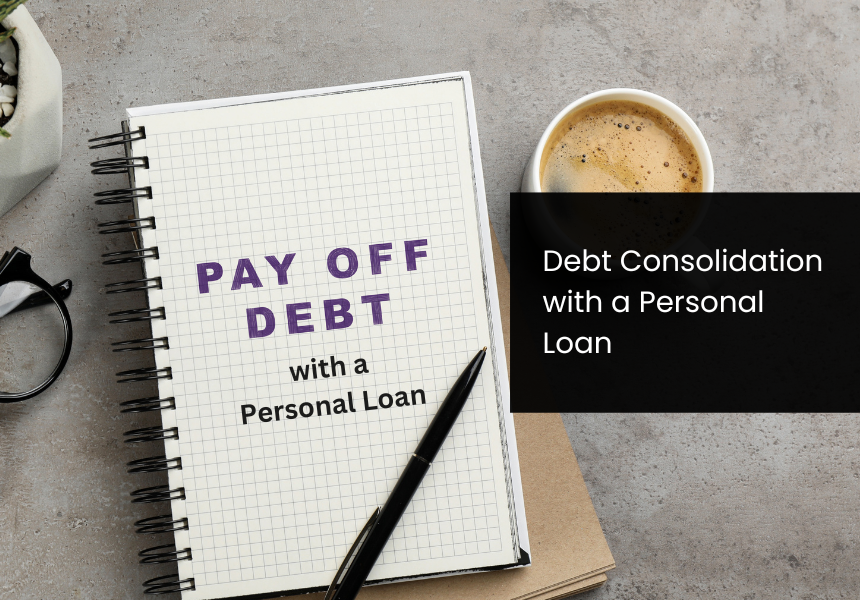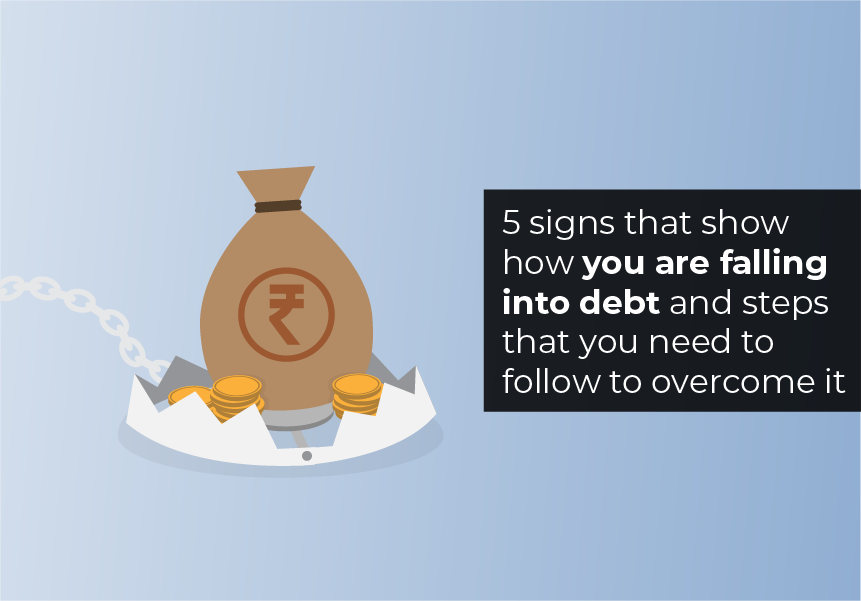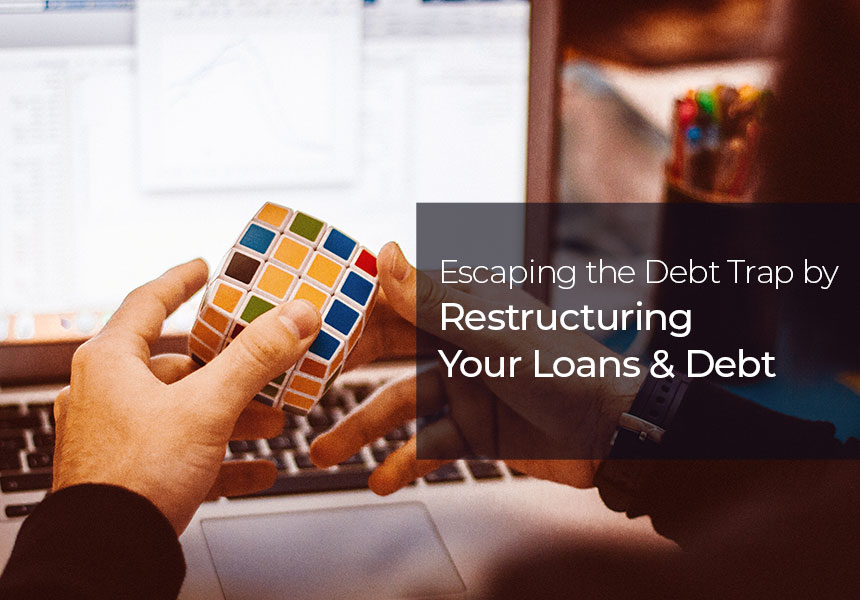
Managing multiple EMIs, credit card dues, and bills every month can feel like juggling fire — one slip, and you risk late fees, penalty charges, or even a hit on your credit score. In today’s fast-paced life, where financial obligations can pile up quickly, many borrowers in India are turning to debt consolidation through personal loans as a practical and stress-relieving solution.
In this blog, we’ll break down what debt consolidation means, why personal loans are a smart option, the step-by-step process to consolidate debt, and important things to keep in mind. We’ll also answer some of the most common questions borrowers have before making this move.
What is Debt Consolidation?
Debt consolidation simply means combining multiple outstanding debts — such as credit card balances, payday loans, medical expenses, or other unsecured loans — into one single personal loan.
Instead of remembering multiple due dates and paying different interest rates, you make a single monthly EMI toward one loan. The main objectives are:
- To simplify repayment by reducing multiple EMIs into one.
- To lower the overall cost of borrowing by replacing high-interest debt with a lower-interest personal loan.
- To bring financial discipline with a fixed repayment timeline.
For example: Suppose you have three credit cards with a combined outstanding of ₹3,00,000 at 36% annual interest. If you take a personal loan of ₹3,00,000 at 18% annual interest, your EMI goes down, and you could save over ₹45,000 in interest annually — while having only one EMI to track.
Why Use a Personal Loan for Debt Consolidation?
A personal loan is one of the most effective tools for debt consolidation because it offers:
1. Single EMI Payment
Instead of juggling five different bills at different dates, you only pay one EMI per month. This makes cash flow management easier and reduces the risk of missing payments.
2. Lower Interest Rate
Credit cards often charge 30–40% annually. Personal loans typically range between 12–24% depending on your profile, helping you save significantly.
3. Fixed Tenure & Predictability
Personal loans come with a defined tenure (generally 1–5 years). You know exactly when you’ll be debt-free, unlike revolving credit card dues that can stretch indefinitely.
4. Boosts Credit Score
Closing multiple high-interest debts and making timely EMI payments on your new loan improves your credit utilization ratio and boosts your credit score.
5. No Collateral Needed
Being unsecured, personal loans don’t require you to mortgage assets like property or gold, unlike some other types of loans.
Step-by-Step Process for Debt Consolidation Using a Personal Loan
1. List All Existing Debts
Create a list of all your current obligations — loan amounts, EMIs, interest rates, and tenure left. This gives you a clear picture of the consolidation needed.
2. Check Your Eligibility
Lenders evaluate your income, job stability, credit score, and repayment history. A higher CIBIL score (700+) improves approval chances and helps secure lower rates.
3. Compare Loan Offers
Not all lenders offer the same terms. Compare interest rates, tenure, foreclosure options, and processing fees. Use online tools to check offers quickly.
4. Calculate the Right Loan Amount
Apply only for the amount you need to cover all outstanding debts. Over-borrowing will only add unnecessary repayment pressure.
5. Apply and Get Disbursal
Once approved, the loan amount is disbursed directly into your bank account. Use it immediately to clear all existing high-interest debts.
6. Close Old Accounts
Ensure that you fully settle and close credit card dues or smaller loans you’ve consolidated. This prevents you from falling back into the same cycle.
7. Focus on Timely Repayment
Automate EMI payments via ECS or standing instructions. Timely payments not only save you penalties but also improve your credit profile.
Things to Keep in Mind Before Consolidating Debt
- Read the fine print: Check for processing fees, foreclosure charges, or hidden costs in the personal loan agreement.
- Don’t restart bad habits: Avoid accumulating new debt on credit cards once you’ve consolidated them.
- Match tenures smartly: Don’t combine long-term secured loans (like home loans) with short-term personal loans, as it may increase repayment pressure.
- Choose flexible repayment: Some lenders offer options like step-up or step-down EMIs, which can make repayment easier depending on your income flow.
Benefits of Consolidating Debt Through a Personal Loan
- Peace of mind with one manageable EMI.
- Reduced interest outgo.
- Defined timeline to become debt-free.
- Improved creditworthiness for future borrowing.
- Simplified financial planning and budgeting.
LoanTap offers flexible personal loan for salaried professionals that can be tailored to your needs, including debt consolidation.
Conclusion
Debt consolidation using a personal loan is not just about convenience — it’s about regaining control over your finances, saving money, and reducing stress. With careful planning and discipline, you can transform a messy debt situation into a clear, structured path toward being debt-free.
If you’re struggling with multiple EMIs, explore LoanTap’s flexible personal loan options to consolidate your debt into a single, affordable EMI — and take the first step toward financial freedom today.
FAQs on Debt Consolidation with Personal Loans
1. Can I use a personal loan to pay off credit card debt?
Yes. In fact, this is one of the most common uses of a debt consolidation loan. It helps you replace high credit card interest (30–40%) with lower personal loan interest.
2. Will consolidating debt hurt my credit score?
Initially, your score may dip slightly because of the new loan inquiry. But in the long term, timely EMI payments and reduced credit utilization will improve your credit score.
3. Can I consolidate secured loans like home or car loans?
It’s not advisable. Debt consolidation works best for unsecured loans like credit cards and personal loans. Combining long-term secured loans with short-term personal loans may create mismatched repayment burdens.
4. How much loan can I get for consolidation?
Most lenders, including LoanTap, offer personal loans up to ₹5,00,000 (sometimes higher depending on your profile). The exact amount depends on your income, credit score, and repayment capacity.
5. What happens if I miss an EMI after consolidating?
Missing EMIs will attract late fees and negatively impact your credit score. Always automate EMIs to avoid missing deadlines.







